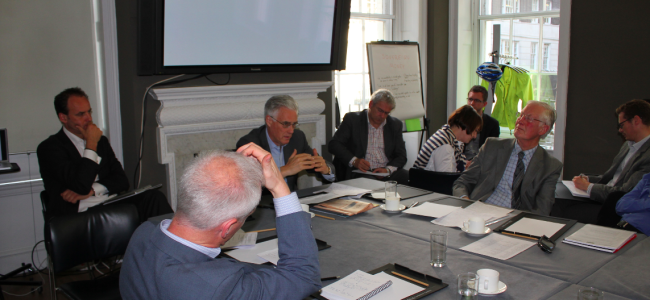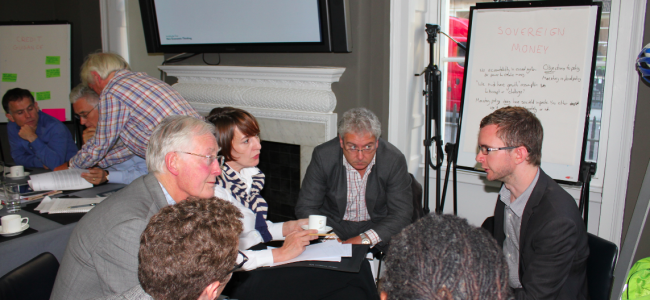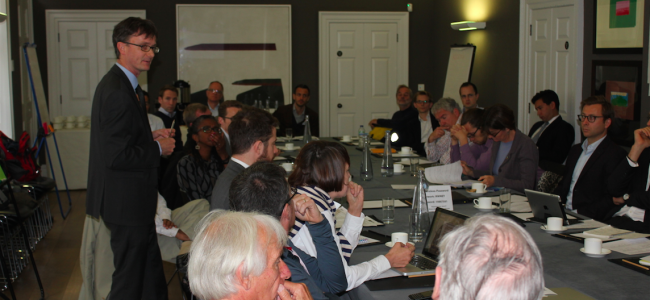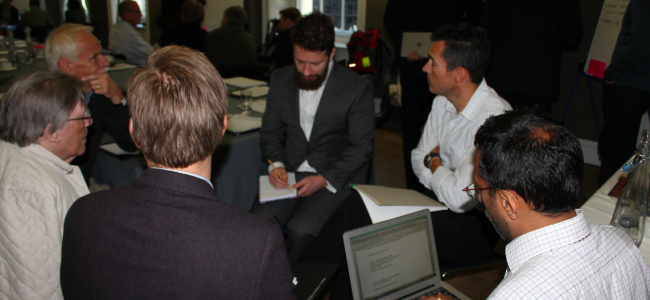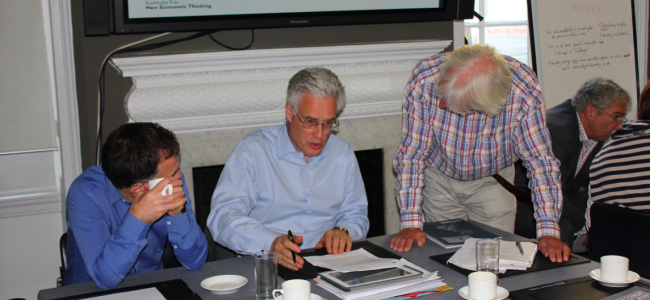A new era for monetary policy – Event with Adair Turner (Video)

On October 7th 2014, we hosted thirty economic thinkers from civil society, trade unions, business, academia, politics, and policy attended a roundtable at the RSA to think about how monetary policy can help to build a sustainable economy.
The main speaker was Lord Adair Turner, former Chairman of the Financial Services Authority (FSA). Lord Turner outlined how the monetary system works and the current monetary policies countries are using. You can see his full talk here:
He was followed by three respondents, Michael Jacobs, a former advisor to Gordon Brown, Zoe Williams from the Guardian, and Tony Greenham, one of our Directors and Head of Finance and Business at the New Economics Foundation.
Tony Greenham discussed the need for further democratic oversight of monetary policy: arguing that monetary policy has social outcomes.
Zoe Williams discussed the barriers to getting democracy and monetary policy more widely discussed in media.
Using his political insight, Michael Jacobs laid out 5 criteria that he thinks are needed for a radical economic policy change: a crisis, a body of economic thinking on the topic, economic interests in favour of the change, one core policy, and trusted institutions to carry out the change. These criteria make the framework for this prezi we have put together on the event:
The group then broke into discussion groups on 5 themes: the green economy, guiding credit into the real economy, economics academics, job creation, and sovereign money. These groups discussed the following questions:
Is there a case to use monetary policy as a tool to achieve long term societal goals (in housing, regional job creation, a green economy)?
How would using monetary policy to achieve long term goals stand against other policy instruments (i.e. instead of or as well as)? What are the main barriers to using it?
How would you get this debate into your sector – what are the first steps? What is needed for your organisation to take action on this issue?
This event brought people together from across different sectors to have a very important conversation: How can our monetary system best serve society? From the energy and enthusiasm in the room, it is clear that this conversation is set to continue.
Everyone felt overwhelmed with information by the end of the afternoon, but the atmosphere was positive with a feeling of the possibility for change in the air – so we finished off the day in the pub!
We would like to thank the Friends Provident Foundation for providing funding for the event.
